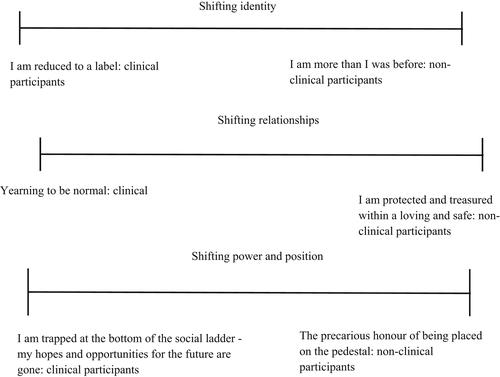Epistemic injustice amongst clinical and non-clinical voice-hearers: A qualitative thematic analysis study
Abstract
Objectives
Research has suggested people who hear voices may be at risk of epistemic injustice. This is a form of discrimination whereby someone is unfairly judged to be an unreliable knower (testimonial injustice) or is unable to contribute to, and therefore access, concepts that make sense of their experience within mainstream society (hermeneutical injustice). Voice-hearing occurs both in people who are mental health service users and in the general population (clinical and non-clinical voice-hearers, respectively). The degree of distress and impairment associated with voices has been shown to relate to how individuals make sense of their experiences and how others respond to their identity as a voice-hearer. The aim of this study was to explore people's experiences of epistemic injustice in relation to voice-hearing and to understand how these may differ between clinical and non-clinical voice-hearers.
Design
A qualitative design was used.
Method
Eight clinical and nine non-clinical voice-hearers partook in semi-structured interviews, which were analysed using thematic analysis.
Results
Three pairs of themes related to (i) identity, (ii) relationships and (iii) power and position were constructed across the clinical and non-clinical groups, and two shared themes within both groups were created relating to testimonial and hermeneutical injustice.
Conclusion
Both clinical and non-clinical voice-hearers described experiencing epistemic injustice in wider society. The presence of a ‘safe haven’ (e.g. spiritualist churches) for non-clinical voice-hearers ameliorated the impact of this to some degree, by allowing people to make connections with others with similar experiences within a non-judgemental and accepting community.


 求助内容:
求助内容: 应助结果提醒方式:
应助结果提醒方式:


